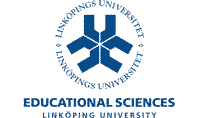|
|
| |
| SYLLABUS |
| Leadership - Conversation and Reflection, 7.5hp,
7,5 ECTS Credits |
| |
COURSE CATEGORY Fristående kurs
MAIN FIELD OF STUDY
SUBJECT AREA
|
|
COURSE CODE |
|
917G27 |
|
| AIM OF THE COURSE |
On completion of the course, the student should be able to
- account for different theoretical starting-points for conversation as a working method
- perform various types of conversations by means of relevant theory and experiences gained from the course
- account for the importance of empathy in conversations
- give and receive constructive feedback
|
| CONTENTS |
| This course contents are explicitly drama communicative with a focus on interpersonal relations from a leader perspective. Important parts of the course are basic practice and exercises in communication, where conversation as a method for efficient leadership is put into its theoretical context. Through conversational exercises, the students obtain practical experiences of different conversational types. Through literature studies and practical exercises, the students are made aware of the importance of their own attitudes, values and needs. Through practical application, the students obtain experience of feedback and reflection. |
| TEACHING |
| The course utilises an imagination-oriented working method based on outdoor-educational and drama-communicative methods. This means, among other things, that the course is located outdoors and in conference establishments. Expenses for lodging and food will be added. Working methods consist of experience-based creation and reflection work in both teacher supervised and non-supervised working methods. These consist of teaching sessions, group assignments, seminars, practical work, imaging, student preparatory parts and independent studies. Both supervised teaching and group work are documented. |
| EXAMINATION |
The course is examined continuously through a reflection assignment linked to the activity of each course date, and to the course literature. Based on an authentic conversational situation, document and reflect on the conversational process and relate to relevant theory and own experiences.
Students failing an exam covering either the entire course or part of the course two times are entitled to have a new examiner appointed for the reexamination.
Students who have passed an examination may not retake it in order to improve their grades.
Students failing an exam covering either the entire course or part of the course two times are entitled to have a new examiner appointed for the reexamination.
Students who have passed an examination may not retake it in order to improve their grades.
Students failing an exam covering either the entire course or part of the course two times are entitled to have a new examiner appointed for the reexamination.
Students who have passed an examination may not retake it in order to improve their grades.
Students failing an exam covering either the entire course or part of the course two times are entitled to have a new examiner appointed for the reexamination.
Students who have passed an examination may not retake it in order to improve their grades. |
| ADMISSION REQUIREMENTS |
|
| GRADING |
| A grade of Pass with Credit, Pass or Fail is given for the course |
| CERTIFICATE |
| Course certificate is issued by the Faculty Board on request. The Department provides a special form which should be submitted to the Student Affairs Division. |
| COURSE LITERATURE |
|
The course literature is decided upon by the department
in question. |
| OTHER INFORMATION |
Planning and implementation of a course must take its starting point in the wording of the syllabus. The course evaluation included in each course must therefore take up the question how well the course agrees with the syllabus.
The course is carried out in such a way that both men´s and women´s experience and knowledge is made visible and developed. |
| |
Leadership - Conversation and Reflection, 7.5hp
Ledarskap - samtal och reflektion |
| |
Department responsible
for
the course or
equivalent:
IKK - Department of Culture and Communication |
| |
|
|
|
|
|
| Registrar No: 242/07-41 |
|
Course Code: 917G27 |
|
|
|
| |
|
Exam codes: see Local Computer System |
|
|
|
| Subject/Subject Area : |
|
|
|
|
|
| |
|
|
|
|
|
| Level |
|
Education level |
|
|
Subject Area Code |
|
Field of Education |
|
| G1X |
|
Basic level |
|
|
UV3 |
|
ÖV |
|
|
The syllabus was approved by the Board of Educational Sciences 2011-04-14
|
|
|
| |
